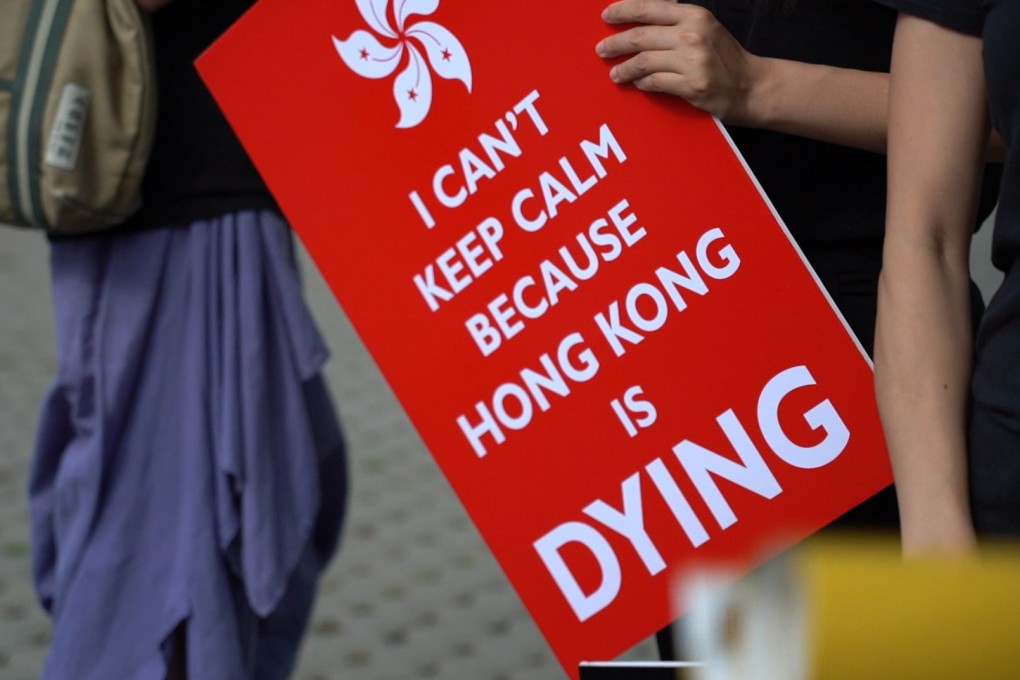US-based Hongkongers ask United Nations to help resolve extradition bill crisis
- Group of 10 students and professionals gather outside UN headquarters in New York
- Crowdsourced letters say rule of law has broken down in the city and call for international intervention

Hongkongers in New York on Wednesday hoped to turn global attention to the escalating violence that has increasingly marred protests in their home city by trying to deliver a letter to the United Nations Security Council.
Dressed in black on a hot muggy day to show solidarity with the protesters, a group of 10 Hongkongers – students and professionals, most of whom had never met each other before – gathered in front of the UN headquarters in Manhattan and shouted “Stand with Hong Kong!”
Then they entered the building with variations of a letter calling for aid they hoped would find their way to the Security Council, as well as the Office of the United Nations High Commissioner for Human Rights, and the Office of the Committee Against Torture.
“The breakdown of the rule of law – guaranteed to us by the Sino-British Joint Declaration and the cornerstone of any functioning society – means that we can no longer rely on our political institutions to provide effective remedies. As such, we urgently request assistance from the international community to address the situation,” the letter to UN High Commissioner for Human Rights Michelle Bachelet, shared with the South China Morning Post, said.
Hong Kong has been rocked by a spate of protests since early June over the government’s now-abandoned plan to pass a bill that could see criminal suspects transferred to jurisdictions the city does not have extradition agreements with, including mainland China.